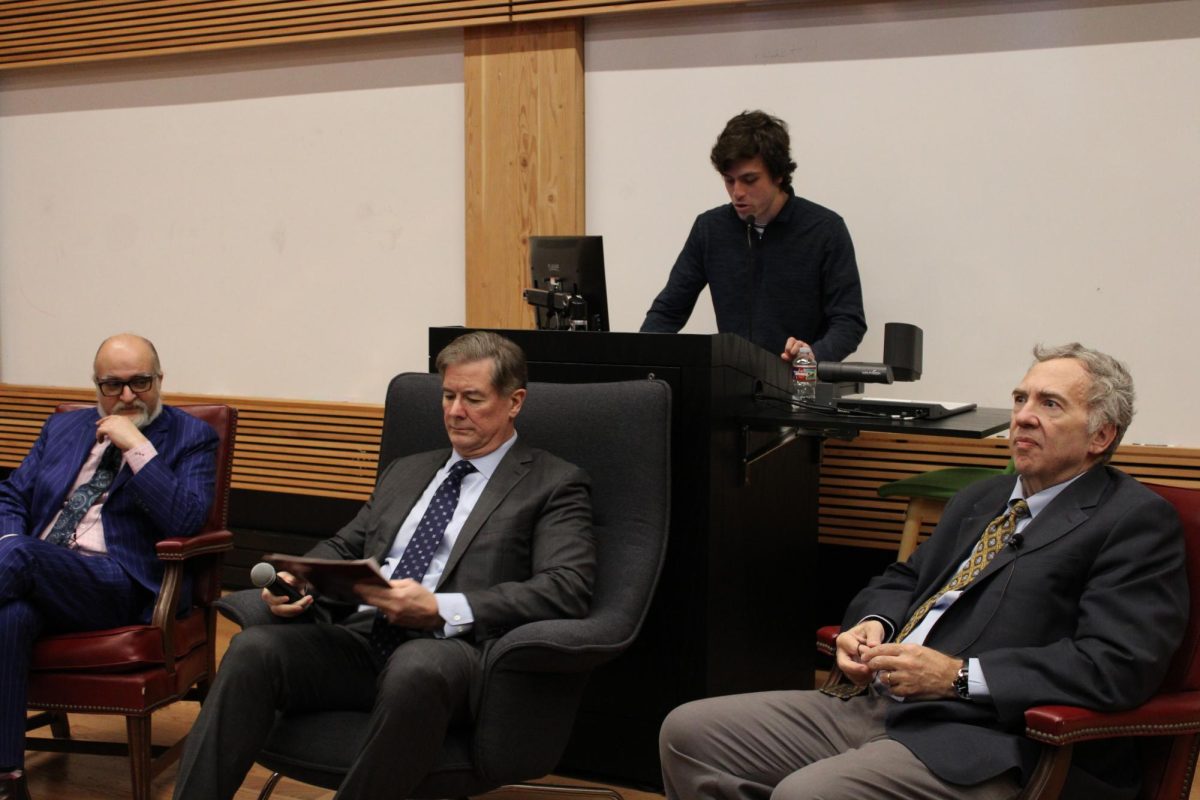Tenure is an indefinite academic appointment, the impetus of which is to prevent teachers from being fired without due cause or reason. Historically, tenure was instituted to provide academic freedom to professors at risk of losing their jobs due to political pressure or being censored when expressing opinions perceived as controversial. Generally speaking, firing a tenured teacher is incredibly difficult and often leads to a hefty financial penalty, but the exact parameters of terminating a tenured professor vary from institution to institution.
PRO – Riya Vankamamidi
Tenure takes the fear out of teaching, ultimately benefiting students and educators alike. Without tenure, a professor could be fired due to voicing unpopular opinions or fighting university administration to protect students. Tenured professors are adequately compensated for the efforts they put into guiding students and advancing research. Job security allows them to innovate and expand on their work without having to worry about mistakes or setbacks costing them their jobs. They can put their students’ learning first and need not worry about catering to standardized tests or unreasonable higher-ups. All in all, tenure grants professors the freedom they need to do what’s best for their students’ education.
A survey by the Foundation for Individual Rights and Expression (FIRE) revealed that of the 1,491 faculty that participated, 62% not on the tenure track said they were “extremely” or “very” likely to self-censor in meetings, social media, interviews and publications. This number reduced to 54% among tenured and tenure-track faculty, proving that tenure does play a role in encouraging freedom of expression among professors. Especially in higher education, students should be able to discuss important and polarizing topics in class. Tenure grants professors the freedom to facilitate these discussions without fearing the consequences brought on by peeved parents or administrators.
In November 2023, Debbie Becher, tenured associate professor of sociology at Barnard College, gathered with 100 of her fellow faculty in the center of Columbia University’s campus to defend the freedom of speech of student organizations. She stated that her tenure made her feel a sense of responsibility for speaking up for students, knowing that her non-tenured peers may receive backlash if they stood against the university. Becher is one of many tenured professors who have used their status to stand with students when university politics stood against them. The special ability to speak out in support of students who have nowhere else to turn to is why tenure is essential.
While there have certainly been instances of professors abusing their tenured status, professors only receive tenure in the first place for continued performance excellence. This includes securing grants, publishing cutting-edge research, teaching and advising students, serving on university committees, etc. Professors with this much accomplishment and passion for their jobs are likely to excel even further with the reward of tenure. However, in the event that a tenured professor does exploit the privilege granted by their position, it is still possible to fire them. Even tenured professors can be removed for incompetence, violation of institutional policies, negligence or immoral conduct.
My education benefits from having professors who can teach without inhibition. How am I supposed to find my voice if those teaching me are censoring theirs? I deeply respect my professors who have poured enough time and energy into teaching and research to gain tenured status, and I trust that a vast majority of them will use this status to better both themselves and student experiences. I see no harm in granting accomplished, well-intentioned professors the reward of tenure to enhance their ability to give me the education I deserve.
CON – Diya Contractor
If tenure’s primary purpose is to protect the principle of academic freedom, why does it so often limit that of a professor’s students? The concept of tenure is inherently counterintuitive, insofar as it protects a professor’s right to say or do anything … while at the same time protecting a professor’s right to say or do anything. While instances of racism, sexism or any other horrible “ism” can technically get a professor fired, the protection of tenure deters action in the form of termination or sanctions on the part of the university and complaints on the part of students.
Tenure doesn’t take the fear out of teaching, it takes the fear out of being fired. It allows professors to act unbridled by the fear of termination or consequence. This isn’t to say a tenured professor cannot be fired, but it takes about the same amount of time and energy as moving a mountain. Firing a tenured professor is incredibly costly, and requires time and effort, months of evaluations, hearings, appeals — that’s only half of it. It would cost a university less to let student complaints go in one ear and out the other than firing an inadequately tenured professor.
It’s written on the wall: tenure protects teachers more than it does students. I have always felt more confident in raising concerns about a non-tenured professor than a tenured one because I know that I’ll be taken more seriously.
Still, a professor’s termination on the grounds of holding an unpopular belief is immoral, period. Like most things in life, tenure is significantly better in theory than execution. It’s simply a pill that temporarily fixes the systemic issue of academic censorship, but the real problem still exists: looking for loopholes to silence professors and prevent them from becoming agents of change (or in some cases, agents against it … either way, I don’t care what a professor’s X feed looks like).
There are alternate cures to academic censorship that exist and don’t have such negative consequences. Similar to worker’s unions, multiple associations are protecting the rights of professors from unjust termination, such as the Texas Faculty Association. Polling shows that public approval of worker’s unions is soaring at 67%, and with that, the power of such associations soars too.
Sure, the possibility of tenure encourages excellence, but aren’t teachers supposed to … want to be excellent? I don’t want to continue sitting in the classes of teachers whose prime motivation to teach me comes from a drive to attain tenure, nor do I want to sit in classrooms led by professors who have become complacent as a result of it.
The fact of the matter is that even if there are a large number of professors who are uncorrupted by the privileges of tenure, there are inarguably those who are. Why should higher education, something we pay to attend, fall victim to an inefficient solution when there are better options available? At the end of the day, our collegiate education is a service we’re purchasing, and I don’t want to pay for complacent or down-right awful professors who are protected by tenure.








